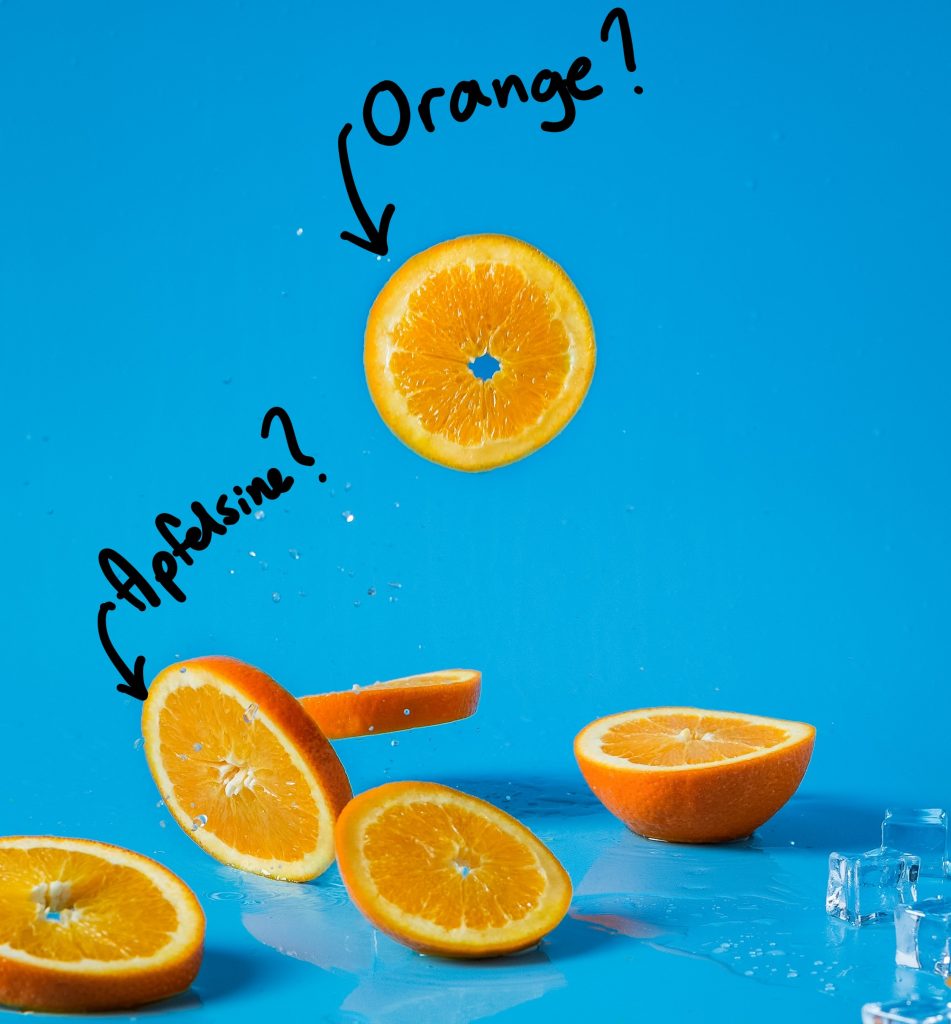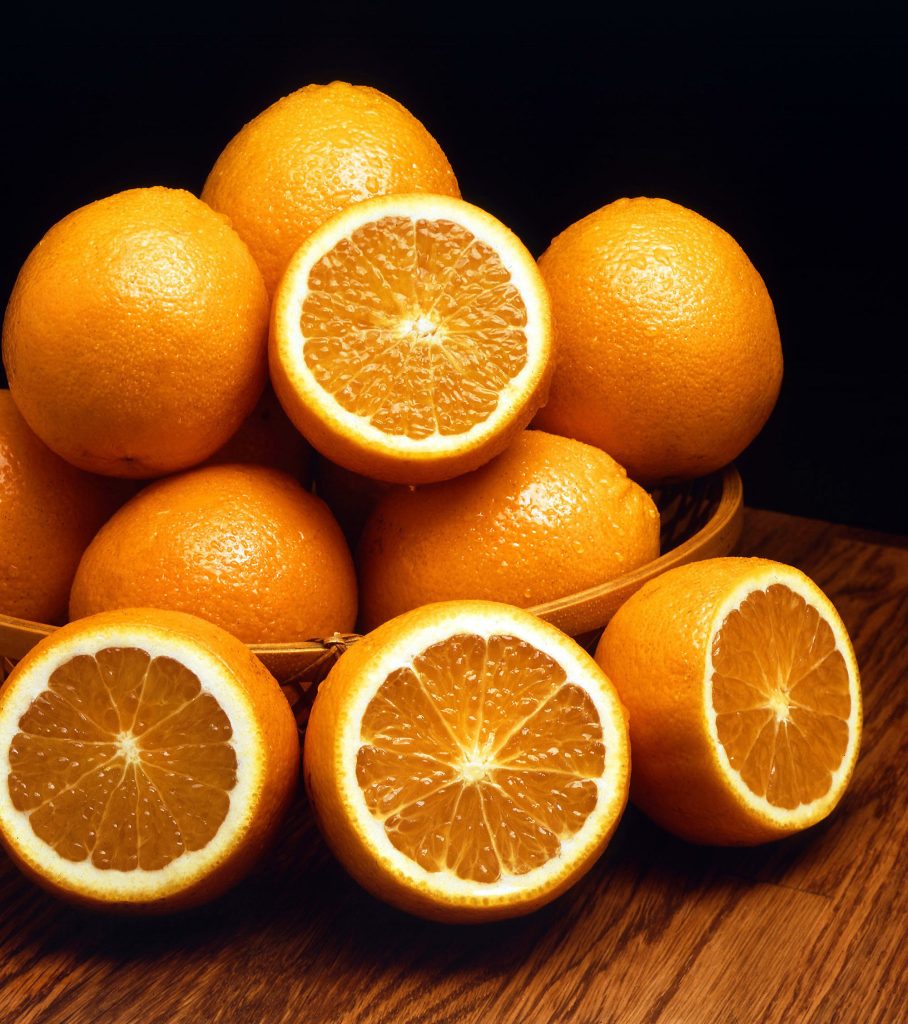The Curiosity of the German Word “Orange” – Part 2 Posted by Sten on Dec 5, 2019 in Culture, Food, Language
Last week, I talked about the curiosity of the German word “Orange”, since the pronunciation of the word differs when you refer to the color or the fruit. See the post for that. But there is something else curious about this word, or well, a related one (thanks Allan for the comment!). This little addendum looks at that. Let’s dive in.
Click here for previous entries in the series on curious words in German
Apfelsine or Orange?
There is a second word that refers to Orange – the fruit in this case. And that is Apfelsine. Wait, what? Listen to the difference:
That is quite a different word! How come that it means the exact same thing? How is it that these words coexist like that?
A Chinese History
As a kid I was always confused. In one supermarket, you could buy Apfelsinen, in the other you could buy Orangen. They looked absolutely identical to me. So why the difference?
It is all in the origin of the word. Where Orange comes from the French, either because of its gold-yellow color, comes from Latin aureus (golden), which in French is or, Perhaps “gold-like” became orange. Since Latin and French were the leading European languages for centuries, it could well be that the word Orange was imported into German this way. Another theory is that it comes from Spanish naranja, who had been introduced to the Orange by Arabs, who called it نارنج (nāranj).
But Apfelsine? That’s such a different word, and with a very different history.
It actually comes from Dutch. In the Netherlands, the orange was known as a fruit that originated from China. It was therefore referred to as appelsien in Old Dutch, combining a known fruit (appel – apple) with its country of origin: Sina (china). These days, that evolved into sinaasappel.1And the Dutch actually don’t also use the word orange or anything like it to refer to the fruit! But that Old Dutch word had already made its way into the German regions, and in northern and central Germany, Apfelsine is used to this day.
But if you thought the French were not involved with Apfelsine, you’d be wrong. The Dutch word sinaasappel comes from the French pomme de Sine. It’s not that the French brought the Orange into Europe – that was the work of the Portuguese in 1548.
Countrywide, it is in decline though, and Orange is slowly overtaking Apfelsine. Perhaps because it is shorter, associated with the color and used in many other world languages (like English and French).
Anyway, that’s how we curiously have two words to refer to the exact same fruit in German!
D0 you have fruits in your language that have two (or more?!) names? Let me know in the comments below!
- 1And the Dutch actually don’t also use the word orange or anything like it to refer to the fruit!

Build vocabulary, practice pronunciation, and more with Transparent Language Online. Available anytime, anywhere, on any device.






Comments:
Allan Mahnke:
Fascinating! It makes perfect sense, though this solution to the origin of the word never occurred to me!
Allan Mahnke:
May I suggest another word with an interesting past and present, if not as astonishing as orange.
Granatapfel – The Latin and Greek backgrounds make it especially interesting.
Sten:
@Allan Mahnke Oh good one. I’ll take a look at that. Thanks for the suggestion!